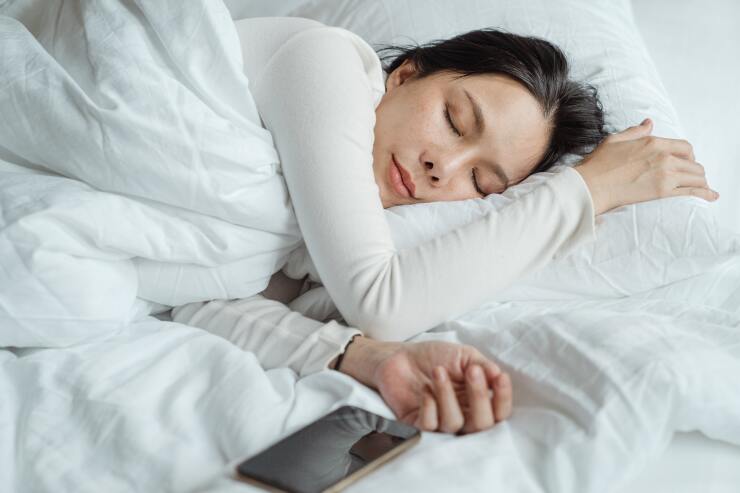If you struggle to fall asleep, but then wake up groggy and foggy-headed, the last thing on your mind is bringing your best self to work.
That’s the reality for many Americans — nine out of ten people struggle to
Read more:
Poor sleep patterns can have long-term negative results, beyond just needing more coffee in the morning, says Dr. Grandner, a sleep advisor at Casper and director of the sleep and health research program at the University of Arizona.
“People who don't get enough quality sleep are more likely to develop heart disease and diabetes, get sick more often and take longer to recover, develop depression or anxiety disorders and tend not to live as long,” he says. “Taking sleep more seriously not only leads to improvements in health and well-being, but it leads to better work outcomes."
The Harmony Healthcare survey found that 35% have pulled an all-nighter in order to do more work. During the pandemic, work hours have become much blurrier for many, and one in five say their sleep habits are much worse than pre-pandemic times.
Employees are taking advantage of work from home to fit in some cat naps, the survey found. Nearly 75% of workers take a nap at home at least once a week, and 11% squeeze in a snooze every day. These naps are typically less than an hour — 33% spend 30-40 minutes napping, while 25% nap for less than 25 minutes.
Read more:
The impact on workers goes beyond the bedroom, too: the survey listed a lack of focus and
To calm the mind, many turn to technology — a sure fire way to get even less quality sleep. Seventy-six percent of people look at their phones before bed, and 19% will reach for their cell phone if they can’t fall asleep, the survey found.
To get better sleep, people should have a consistent sleep schedule and a calming pre-bed routine, Dr. Grandner says. Employers can also play a role by incorporating sleep support like any other healthcare offering.
“Encourage a workplace culture that sees sleep health as being just as important as a good diet, physical exercise and healthy stress management,” he says. “That means allowing for flexible time, not encouraging schedules that do not align with people's rhythms and providing resources for better sleep.”






